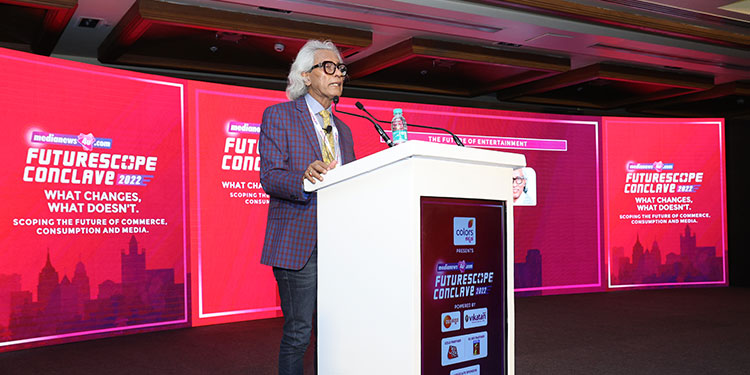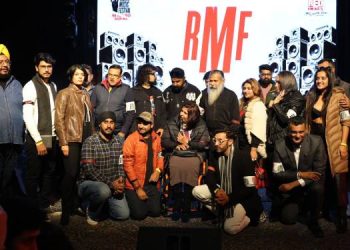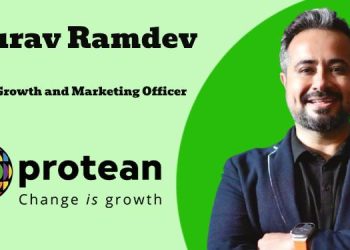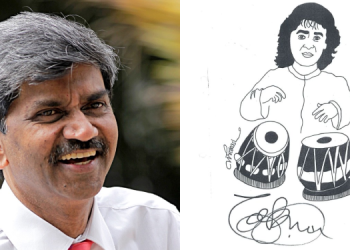“Post Covid, demand patterns have shifted to consumers actively seeking entertainment alternatives. With digital infrastructure growing in terms of handsets and bandwidth and a huge plethora of content, adoption of digital media has accelerated. Consumption pattern has increased exponentially,” observed Dr Bhaskar Das, Director – Content, Yunometa and Professor & Mentor, Centre for Entertainment & Media Studies, MICA.
He was delivering the keynote on ‘The Future of Entertainment’ at the inaugural Futurescope Conclave in Bengaluru on 15th July 2022.
“Why do you require entertainment? Because you are bored with your life. You need an escape.You need fun. So you watch Amazon, Netflix, you attend parties, go for driveaways, and more. So the future of entertainment is fantastic. My talk is over,” he quipped earlier, setting the tone for his address and underlining the undiminishing importance of entertainment.
The speaker segmented the world as BP and DE – ‘Before Pandemic’ and ‘During Endemic’. “What has happened during this period to entertainment?” he posed.
According to Dr Das, newer segments like gaming have emerged and are here to stay, with attendant advertising revenues. “‘I sometimes feel very lucky that I left print at the right time,” he mused, not entirely in jest.
“When I joined this industry, it was 80 percent of the industry (revenue). Current data says it is 5 pc,” he added, noting for consolation that the base today is much higher.
Digital and gaming combined account for 43 pc of ad revenue, while television is at 38~39 pc, quoted Dr. Das. “Those who are in television should also get concerned, get themselves upskilled,” he said.
“This demand side shift has also forced the supply side to get reorganised. As a result the M&E industry has availed of all the opportunities to reinvent and experiment with business models. And while all this has been happening, the basic game has not changed. The rules of the game have changed,” explained Dr. Das.
Innovation in Monetisation
He described the ‘basic game’ as consumption, accelerated due to fascination for escapism and entertainment, and the need for innovative routes for monetisation moving beyond a linear model.
“There has been fragmentation of media, fragmentation of minds, inter-category migration of attention and inter-category migration of cash. So, automatically, monetisation routes have changed. Every format of delivery to consumers, print, TV, radio, digital, gaming, etc. add video, audio, text and experiential products to start redefining themselves,” he noted.
It is not that platforms will vanish, but there is a need for practitioners of the future to think horizontally and act vertically, explained the speaker. “The text of a digital product and the text of a Times of India will be very different from the text of a DailyHunt,” he added.
In the past, community used to be defined by a lump of people one considered as a segment, observed the media veteran, pointing to one more aspect that has changed.
“Thanks to things like AR, AI and ML, media companies have been empowered to construct media communities around individuals to the level of n=1. They are using recommendation tools, voice recognition and media automation to accelerate this trend,” said Dr. Das.
A New Creator Economy
On what the future holds with respect to Web 3.0, he underlined that if one thought the internet was big, BlockChain is going to be bigger.
“It’s much safer, much more trustworthy, privacy is taken care of. This has given rise to metaverse and non-fungible tokens (NFT). A new creator economy has come. We must understand that the protocols of this creator economy is going to be different. It’s still entertainment, it’s still escapism, but you become the creator,” elaborated Dr. Das.
New modes of distribution and continuously calibrated innovative monetisation routes will mark entertainment of the future, according to the speaker, through strategic partnerships, mergers and acquisitions. He cited the example of Netflix tying up with Microsoft for monetisation of its AVOD model to substantiate the point.
“So the game continues, in terms of attracting the fleeting interest of the consumers. Retaining them, transacting with them for value creation, and of course, valuation,” noted Dr. Das.
New Age Partnerships
With time spent on traditional media under pressure and attention becoming harder to win among impatient consumers, the challenges are paramount. That said, partnerships like the unlikeliest of ones between Starbucks and Alibaba, to create an amusement park in the metaverse.
“The next great content convergence will prove more revolutionary, bringing next generation technology. The future is predictable now. It will be multi-sensory and interactive. I can see the ways in which this convergence will change the nature of consumption,” noted the speaker.
The speaker pointed to some key trends – ‘Being there’, ‘Discovery’ and ‘Storytelling’ – before surmising saying, “Entertainment as a concept is much more powerful than cold efficiency of numbers, or histrionics in the news studio.”
Watch the video here:

















